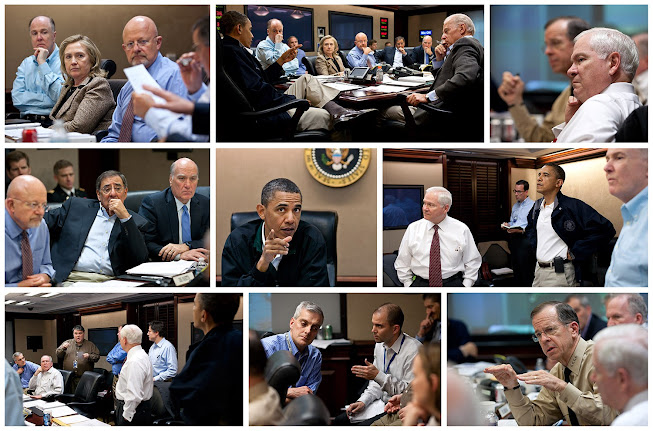Review by Bill Doughty––
George Stephanopoulos pulls back the curtains of secrecy surrounding one of the most important rooms in the world: The White House Situation Room is his momentous and relevant book for the “interesting times” in which we live.
Through vignettes, descriptions, and photos, we get to look into the room where key decisions are made and history is forged.
In “The Situation Room” (Hachette Books, 2024), author and pundit Stephanopoulos shows its creation by JFK during the Cold War, its role in the infamous Iran-Contra affair under Reagan and Bush Sr., and its iconic place in history during killing of Osama bin Laden under leadership of Obama, Biden, Gates and McRaven.
“This is the Situation Room at its best: a place of sober discussion, informed thinking, apolitical attitudes and an absence of grandstanding,” he writes. There is no place for loyalty tests or fear of retribution. The room was critical in the wake of 9/11 and dozens of other crises. In recent years the Situation Room was used by Vice President Pence and Drs. Fauci and Birx during the Covid pandemic under President Trump.
Repeatedly, we see the important tenet of good leadership: surround yourself with good people who can help shape good decision-making, especially in a crisis situation. We also see the opposite.
“This book examines crisis management in the modern presidency. During the Trump administration, the president was the crisis to be managed.
It took a toll on those who had to do it. Trump tore through and wore out his national security team: Four secretaries of defense. Four directors of national intelligence. Four White House chiefs of staff and five secretaries of homeland security. The most damning judgments of his competence and character come from those he appointed to these most sensitive positions. His first secretary of state, Rex Tillerson, famously told colleagues that Trump was a ‘moron.’ James Mattis, the former Marine Corps general who served as Trump’s first secretary of defense, described him as a threat to the Constitution ‘who does not try to unite the American people –– does not even pretend to try.’ Fellow Marine general and White House chief of staff John Kelly called Trump ‘the most flawed person I have ever met in my life.’”
 |
| Tillerson, Mattis and Kelly |
Now, in the wake of the tragic attempted assassination of the former president, the situation may have changed, according to some pundits who hope for more understanding, unity, and comity. Yet, this week’s Republican National Convention showcases the rise of Christian Nationalism as many of Trump’s loyal associates and January 6 insurrectionists are in prison or under a cloud of indictments and accountability. That includes Trump himself. It’s a strong contrast to Biden, most of his associates, and particularly his national security team.
That is the current situation and the curse we are under: living in “interesting times.”


No comments:
Post a Comment